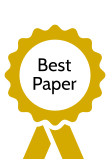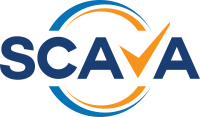OSS 2019
The 15th International Conference on Open Source Systems, OSS aims at providing an international forum where a diverse community of professionals from academia, industry, and the public sector, and diverse FLOSS initiatives can come together to share research findings and practical experiences. The conference is also a forum to provide information and education to practitioners, identify directions for further research, and to be an ongoing platform for technology transfer, no matter which form of FLOSS is being pursued.
OSS will take place from May 26th to 27th 2019 at the Fairmont The Queen Elizabeth Hotel, in Montréal, Canada.
This year OSS is co-located with ICSE 2019 and other conferences like MSR, ICPC and SEAMS.
Temporary free access to the online version of the OSS proceedings on SpringerLink for registered conference participants via this link.
This edition the best papers of the conference will be invited to be included in the Special Issue on Software Quality in Free/Open Source Software of the Software Quality Journal edited by Springer. |
 |
The best contribution in the Research papers track will be awarded with the Best Paper Award |
OSS 2019 CROSSMINER event
This year the the Eclipse Foundation, in collaboration with the Crossminer project, organizes the OSS 2019 CROSSMINER EVENT.
|
Eclipse SCAVA: Helping software developers select the right open source components
Eclipse SCAVA aims to analyze and extract knowledge from open source projects and their resources, such as bugs, forums or documentation, in order to provide a set of metrics and criteria to help the developer pursue their goal - to find the right component. During this tour, we will briefly introduce the research project and its concepts. You will be able to get your hands on a working, pre-populated knowledge database to use some of the following metrics and recommendations:
We will conclude our tour with a “call for action” inviting the public to join Eclipse SCAVA's emerging open source community. |
 |
OSS 2019 Papers: Call for Papers
View track page for all detailsFree/Libre Open Source Software (FLOSS) development has emerged as one of the most important phenomena of computer science and engineering. It has a major impact in the industry and has been instrumental for education and research in the academia, providing free access to essential tools, from compilers to word processors. FLOSS has changed the way people perceive the software business, and it has often kept the software market away from monopolies. As such, a deep understanding of FLOSS requires the understanding of a wide spectrum of issues.
The goal of OSS 2019 is be a holistic forum on FLOSS aimed across people from widely diverse backgrounds. OSS 2019 will be a forum to discuss theories, practices, experiences, and tools on development and applications of OSS systems, with specific focus on two aspects:
- The development of Free/Libre Open Source Systems and the underlying technical, social, and economics issue
- The adoption of FLOSS solutions and the implications of such adoption both in the public and in the private sector.
OSS 2019 will bring together people from industry and academia to share experiences and ideas and to provide an archival source for important papers on Free/Libre Open Source topics.
The conference is also meant to provide information and education to practitioners, identify directions for further research, and to be an ongoing platform for technology transfer.
The conference will include three kinds of submissions:
- Research papers (max 10 pages): Submissions describing research activities in the area of open source software with concrete insights;
- Engineering papers (max 5 pages): Submission describing the development of tools, libraries, etc. that are widely used in the community;
- Industry and Community experience reports (max 5 pages): Submissions reflecting on experiences about open source processes, techniques, tools, business models, best practices, etc.
The conference will stress practical applications and implications of Free/Libre Open Source Software (FLOSS) . Conference topics include, but are not limited to:
- Foundations and rationale of FLOSS
- FLOSS development communities
- Tools and infrastructures for FLOSS Development
- FLOSS and eGovernment
- FLOSS and Open Knowledge
- Knowledge management in FLOSS
- Business models and FLOSS
- Impact of FLOSS on social networks
- Documentation of FLOSS
- Cost and economic models of FLOSS
- FLOSS and Agile Methodologies
- FLOSS and DevOps
- FLOSS scalability issues
- FLOSS education and training
- Introduction of FLOSS in companies and Public Administrations
- Empirical analysis of FLOSS
- FLOSS case studies and experiments
- Licensing issues in FLOSS
- Legal issues in FLOSS
- Software engineering aspects, human factors, and other aspects of FLOSS
Submissions are invited for original papers (unpublished and not submitted elsewhere). Authors must clearly explain the contribution of the work in terms of its theoretical and/or practical value and relationship to previous work. Submissions must be in English following the Springer guidelines available at: https://goo.gl/r83B1W.
The best papers will be invited to be included in the Special Issue on Software Quality in Free/Open Source Software of the Software Quality Journal edited by Springer.
To allow for more complete and fully formatted reference lists, bibliographic references do not count towards the page limit.
Papers should submitted as PDF files at https://easychair.org/conferences/?conf=oss2019
Accepted papers and reports will be included in the conference proceedings, which are published by Springer, and will be made available as Open Access.